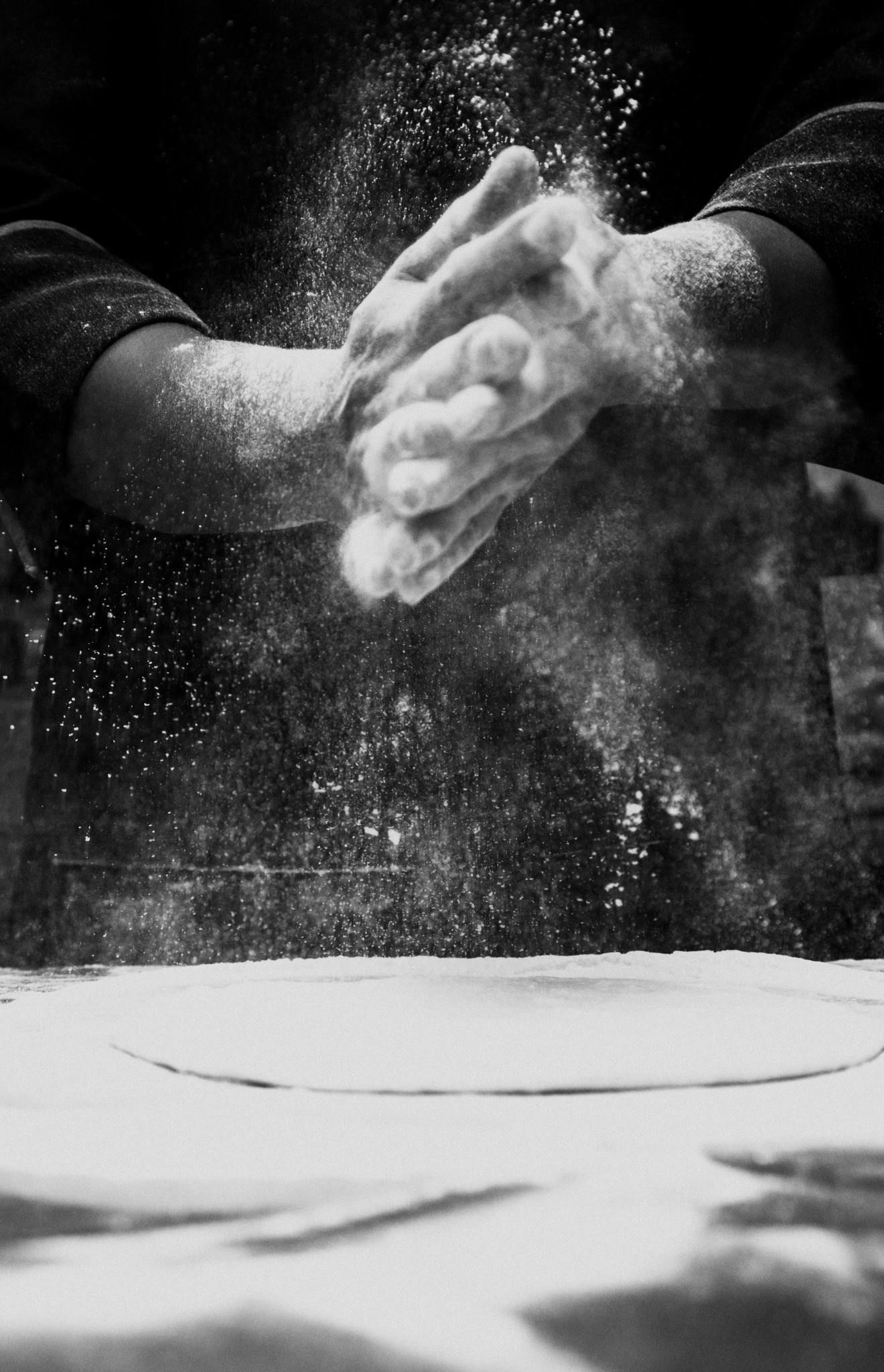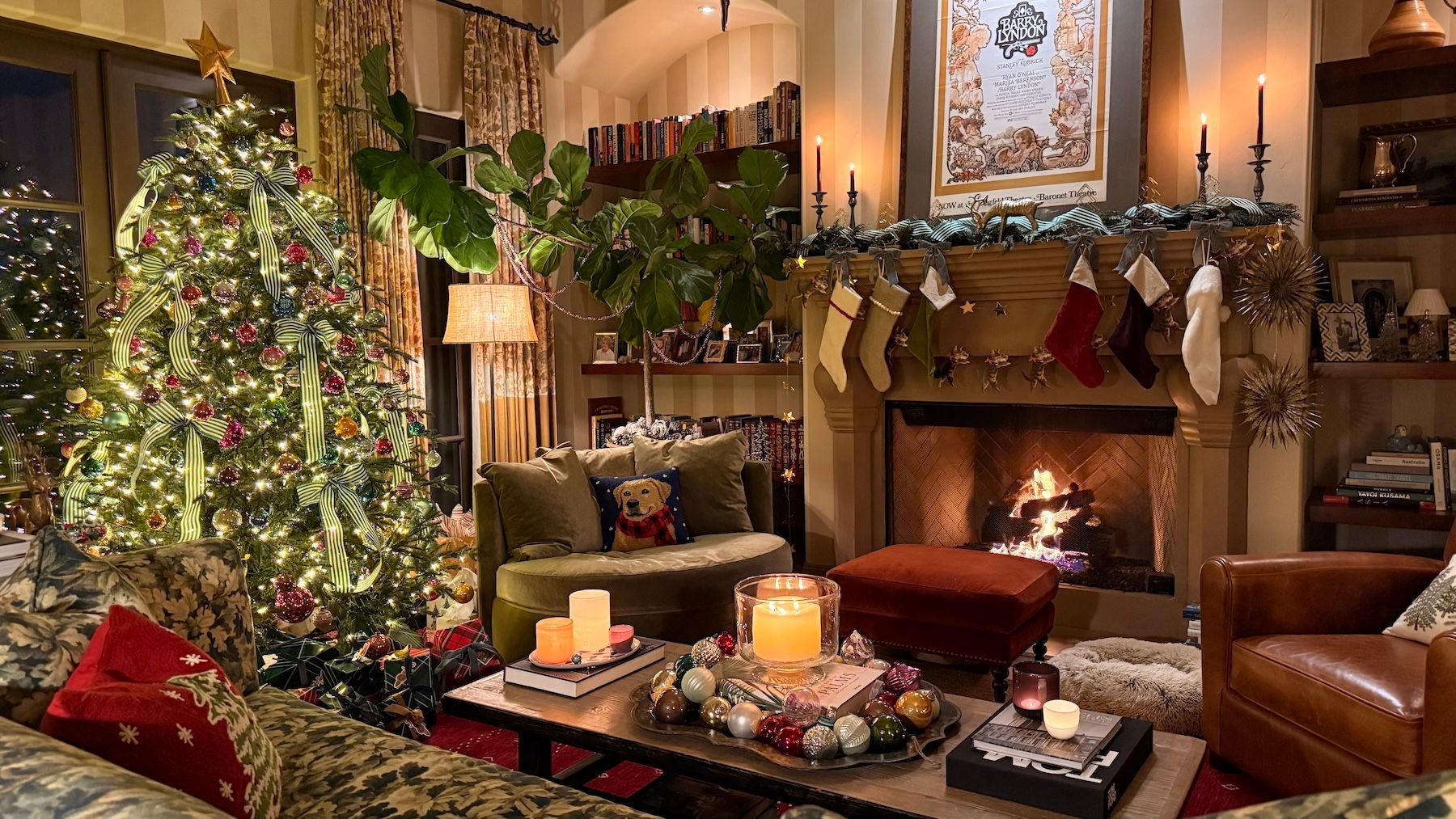Women: We Do Belong in the Kitchen
"Because of the women who came before me, I’ve been able to create a space at Ashford Acres where everyone is welcome."

Women: We Do Belong in the Kitchen
When I think about the kitchen, it’s not just the warmth of an open oven or the scent of food
made with care that fills me with emotion. It’s the rhythm of laughter, the hum of hard work, and
the shared energy that transforms a simple space into a sanctuary. Most of all, I think about the
women who’ve stood beside me—who’ve shaped, inspired, and taught me what it means to cook
with heart.
My first memories of this magic trace back to my great-grandmother’s table. Her buttermilk
biscuits were wicked—so powerful they could silence a room, easing any tension with every
bite. These biscuits, often paired with her Southern-style gravy, weren’t just food; they were
symbols of warmth and comfort. That gift passed down to my grandmother, then to my mother,
and now it lives in me.
Cooking for others is an act rooted in selflessness and intention. My grandmother showed me
how to tell when fudge was ready using the “hard ball” method—an almost scientific process
that seemed impossible at first. Yet she had an uncanny ability to pull that hot sugar and butter
mixture at just the right moment. Every year, she and my mom spent a month preparing candy
for Christmas, turning their labor into the most cherished gifts. Now, my mom continues that
tradition, keeping my grandmother’s spirit alive with every batch.
My mom has been a cook her entire life, but she found a true sense of purpose when she became
a lunch lady at a small rural school in Western Kentucky. There, she and her team serve 180
students five days a week. When she talks about her kids—because that’s how she sees
them—her voice shifts. There’s joy when they succeed, heartbreak when they hurt, and a deep
sense of connection in every word. These women don’t just serve meals; they provide comfort
and care. The students call my mom Miss Melody, and they adore her—not just for the food she
makes, but for the warmth she brings into their lives.
That same spirit lives in my kitchen today. Being a female chef isn’t just a job; it’s who I am.
The women who taught me to cook turned the kitchen into a sacred space, and I try to carry that
forward. I think of my Sous Chef, who pours her heart into every carefully crafted confection,
my apprentice, whose hunger for knowledge drives her every day, and our Assistant to the
Director, who shares her food stories and gifts me cookbooks filled with Southern tradition.
Together, we embody the Divine Feminine—nurturing, intuitive, creative, and connected. In our
kitchen, creation and nourishment intertwine, and every dish tells a story.
Food brings us together. It sets aside differences and fosters connection. Around the table, we
don’t just share meals; we share memories, comfort, and belonging. It’s a simple act, but one
with profound impact—a universal language that speaks to everyone.
In the professional food industry, the atmosphere can be more intense. The nurturing energy
often gives way to sharper heat and more aggressive dynamics. Women have fought for their
place, respect, and recognition in a world that has long been dominated by men. This irony is not
lost on those of us carving out careers in this field.
Yet, we are making our mark. Icons like Julia Child, Edna Lewis, Nancy Silverton, Alice Waters,
and Martha Stewart broke down barriers and showed the world that female chefs are forces to be
reckoned with. Julia Child made French cuisine accessible, Edna Lewis elevated Southern food
to an art, Nancy Silverton revolutionized bread and pastry, Alice Waters championed farm-to-
table dining long before it was trendy, and Martha Stewart redefined domesticity and cooking
with her unique blend of expertise and style. These women paved the way, and I stand on their
shoulders.
Even now, female chefs face unique challenges. We’re expected to balance strength and warmth,
assertiveness and kindness, leadership and nurturing—all while constantly proving we belong.
But perhaps this balance is our greatest strength. We bring more than flavor to the kitchen—we
bring perspective. We cook not just for sustenance, but for connection, blending tradition with
innovation. And we do it with intention.
Because of the women who came before me, I’ve been able to create a space at Ashford Acres
where everyone is welcome. Here, food goes beyond nourishment. It’s about the stories we tell,
the connections we forge, and the care we offer with every bite.
In the end, love is the secret ingredient. It’s what transforms a simple meal into a lasting memory,
a shared table into a place of belonging. It’s the legacy of the women who came before me—their
strength, creativity, and care—that inspires me to keep cooking, creating, and sharing.
In memory of my grandmother, Rity Rice.
Audrey Middleton, Executive Chef, 2025





